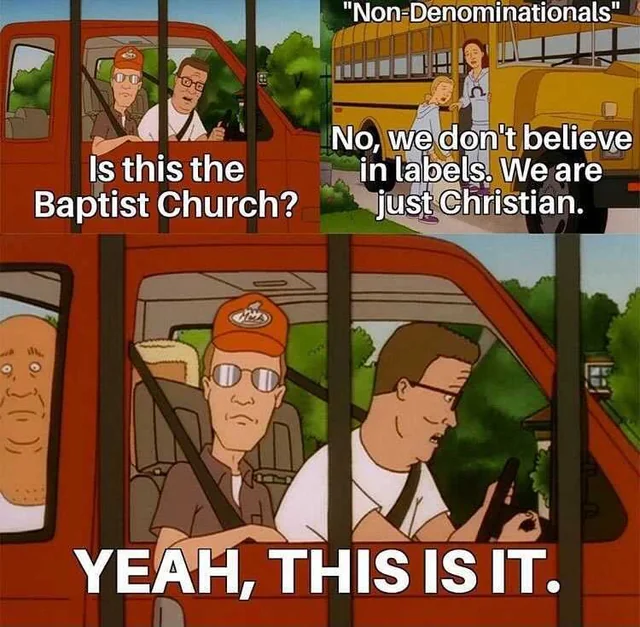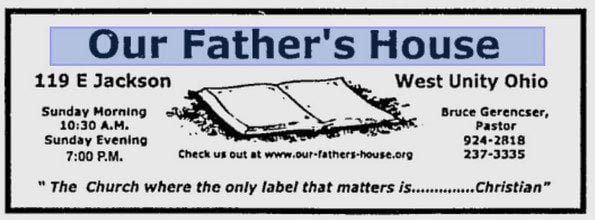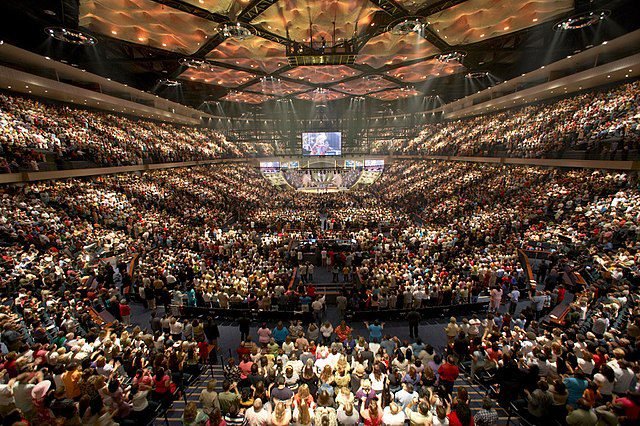
Dr. Gero asked:
What are the core fundamental beliefs of Baptists that are shared with these “non-denominational” churches? Also what separates Charismatics/Pentecostals from Baptists? They look mostly the same.
Please see my posts titled Are Evangelical Churches Really “Nondenominational?” and Are Evangelicals Fundamentalists?
Nondenominational is Greek for Baptist. Theologically, there is little to no difference between nondenominational and Baptist churches. Go to a nondenominational church’s website, read their official doctrinal statement, and then compare it to the official beliefs of the National Association of Evangelicals and the Southern Baptist Convention. Any deviations are minor/insignificant. On secondary issues such as eschatology, pneumatology, ecclesiology, Calvinism, and Arminianism, there are differences of opinion, but none of which should cause the other to say, “You are not a real Christian.” Of course, there are always outliers, especially when you reach the outlands of Evangelicalism. I knew Calvinists who believed that Arminians were lost or Pentecostals who thought that you had to speak in tongues to be saved. All these exceptions do is prove the rule.
I should note, in passing, that many Charismatic churches are nondenominational. While their services may resemble a scene from One Flew Over the Cuckoo’s Nest, their core doctrines are as Baptist as any of the churches I pastored. Word of Faith churches and prosperity churches are an exception to this observation. Quite frankly, most of these churches are either heterodox or downright heretical.
There’s a difference between Charismatic churches and Pentecostal congregations, though that line has blurred somewhat over the years. I have attended numerous Charismatic and Pentecostal church services. I even preached for several Charismatic/Pentecostal churches. I generally found that Pentecostal churches were deeply influenced by the holiness movement, and many of them were appalled by what they saw in Charismatic assemblies. Charismatics seem to have no guardrails. “If God is moving, who are we to object?” the thinking goes. What started with speaking in tongues, has turned into all sorts of crazy, including raising the dead, hysterical laughing, and gold fillings magically growing in mouths. Just go to YouTube and search for Charismatic church services for evidence of my claims. Lots of cray-cray.
Sameness is in the eye of the beholder. I admit I have a sharply critical eye, so I tend to spot differences that casual church attendees might not see easily.
Bruce Gerencser, 68, lives in rural Northwest Ohio with his wife of 47 years. He and his wife have six grown children and sixteen grandchildren. Bruce pastored Evangelical churches for twenty-five years in Ohio, Texas, and Michigan. Bruce left the ministry in 2005, and in 2008 he left Christianity. Bruce is now a humanist and an atheist.
Your comments are welcome and appreciated. All first-time comments are moderated. Please read the commenting rules before commenting.
You can email Bruce via the Contact Form.



